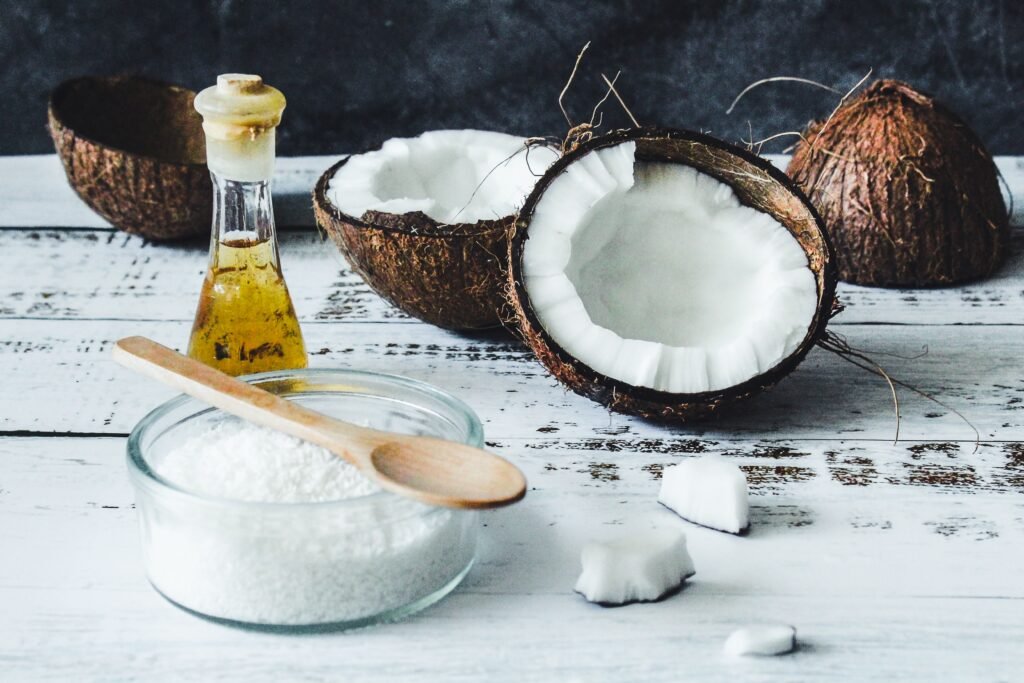If you’re looking to up your vitamin and mineral intake while adding a delicious kick to your meals, look no further than mustard greens. These leafy greens pack a major punch when it comes to nutritional benefits. From their high content of vitamins A, C, and K, to their impressive levels of antioxidants and fiber, mustard greens are a versatile and nutritious addition to any diet. Whether you enjoy them sautéed, steamed, or added to your favorite salad, incorporating mustard greens into your meals can help enhance your overall health and well-being.

1. Nutritional Value
Mustard greens are a highly nutritious leafy green vegetable that is packed with essential vitamins and minerals, making them a valuable addition to your diet.
1.1 Vitamins and Minerals
These greens are particularly rich in vitamins A, C, and K. Vitamin A is essential for maintaining healthy vision and supporting immune function. Vitamin C is a powerful antioxidant that strengthens your immune system and promotes collagen production for healthy skin. Vitamin K is crucial for blood clotting and maintaining bone health.
In addition to vitamins, mustard greens are also a good source of minerals such as calcium, magnesium, and selenium. Calcium is vital for building and maintaining strong bones, while magnesium supports proper nerve and muscle function. Selenium, on the other hand, acts as an antioxidant and aids in the proper functioning of your immune system.
1.2 Antioxidants
Mustard greens contain a variety of antioxidants that help protect your cells from damage caused by harmful free radicals. These antioxidants work by neutralizing free radicals, preventing them from causing oxidative stress to your body.
1.3 Fiber Content
Another nutritional benefit of mustard greens is their high fiber content. Fiber is important for maintaining a healthy digestive system, promoting regular bowel movements, and reducing the risk of chronic diseases such as heart disease and diabetes. Consuming an adequate amount of fiber also helps you feel fuller for longer, aiding in weight management.
2. Boosts Immunity
Consuming mustard greens can provide a significant boost to your immune system due to their rich vitamin and mineral content.
2.1 Vitamin C
Mustard greens are an excellent source of vitamin C, a nutrient known for its immune-boosting properties. Vitamin C helps stimulate the production of white blood cells, which are essential for fighting off infections and viruses. Incorporating mustard greens into your diet can help strengthen your immune system and reduce the frequency and severity of illnesses.
2.2 Antimicrobial Properties
Studies have shown that mustard greens possess antimicrobial properties, which means they can help protect your body against harmful bacteria and other microorganisms. This can be particularly beneficial in supporting your immune system and preventing infections.
2.3 Selenium Content
Mustard greens also contain selenium, a mineral that plays a vital role in supporting your immune system. Selenium helps regulate immune responses and promotes the production of antibodies, which are crucial for fighting off infections. Consuming mustard greens regularly can help enhance your immune response, allowing your body to better defend against illnesses.

3. Promotes Heart Health
Maintaining a healthy heart is essential for overall well-being, and consuming mustard greens can contribute to heart health in several ways.
3.1 Lowers Cholesterol
Mustard greens are low in calories and contain no cholesterol, making them a heart-healthy food choice. Additionally, their high fiber content can help lower LDL (bad) cholesterol levels by reducing the absorption of cholesterol in the intestines. Lowering LDL cholesterol levels can significantly reduce the risk of heart disease and stroke.
3.2 Reduces Blood Pressure
High blood pressure is a major risk factor for heart disease, and mustard greens can help regulate blood pressure levels. The high potassium content in mustard greens helps counteract the effects of sodium on blood pressure, promoting healthy blood pressure levels.
3.3 Protects against Atherosclerosis
Mustard greens are rich in antioxidants and phytochemicals, which can help prevent the development of atherosclerosis. Atherosclerosis is a condition characterized by the buildup of plaque in the arteries, which can obstruct blood flow and increase the risk of heart attacks and strokes. The antioxidants in mustard greens help prevent the oxidation of LDL cholesterol, reducing the risk of plaque formation in the arteries.
4. Anti-inflammatory Effects
Inflammation is a natural response by the body to injury or infection, but chronic inflammation can contribute to the development of various diseases. Mustard greens possess anti-inflammatory properties that can help combat chronic inflammation in the body.
4.1 Isothiocyanates
Mustard greens contain isothiocyanates, compounds that have been shown to possess anti-inflammatory properties. These compounds help inhibit the production of inflammatory proteins, reducing inflammation in the body. By incorporating mustard greens into your diet, you can promote a healthier inflammatory response and potentially reduce the risk of chronic inflammatory conditions.
4.2 Omega-3 Fatty Acids
Omega-3 fatty acids are known for their anti-inflammatory effects, and mustard greens are a good source of these beneficial fats. Consuming omega-3 fatty acids from plant-based sources, such as mustard greens, can help reduce inflammation in the body and support overall health.
4.3 Phytonutrients
Phytonutrients found in mustard greens, such as glucosinolates and flavonoids, also contribute to their anti-inflammatory properties. These phytonutrients help neutralize free radicals, reduce inflammation, and support the body’s natural defense mechanisms.

5. Cancer Prevention
Mustard greens are rich in compounds that have been studied for their potential anti-cancer properties. Including mustard greens in your diet may help reduce the risk of certain types of cancer.
5.1 Sulforaphane
One of the key compounds found in mustard greens is sulforaphane. Sulforaphane has been extensively studied for its potential anti-cancer properties. Research suggests that sulforaphane can inhibit the growth of cancer cells, induce cell death in cancer cells, and reduce the spread of tumors.
5.2 Indole-3-Carbinol
Indole-3-carbinol is another compound present in mustard greens that has shown promise in cancer prevention. Studies have indicated that indole-3-carbinol can help regulate cell growth, prevent the formation of blood vessels that nourish tumors, and enhance the body’s ability to detoxify harmful substances.
5.3 Glucosinolates
Mustard greens contain glucosinolates, which are compounds that can be converted into cancer-fighting substances in the body. These substances have been found to inhibit the growth of cancer cells and reduce the risk of certain types of cancer, including lung, bladder, breast, and colorectal cancer.
6. Bone Health
Maintaining strong and healthy bones is essential for overall mobility and preventing conditions such as osteoporosis. Mustard greens offer several nutrients that support bone health.
6.1 Calcium Absorption
Calcium is a vital mineral for bone health, and mustard greens provide a good source of calcium. Moreover, the high vitamin K content in mustard greens plays a crucial role in calcium absorption and utilization by the body. Adequate calcium absorption helps strengthen bones and prevent conditions like osteoporosis.
6.2 Vitamin K
In addition to its role in calcium absorption, vitamin K is essential for bone formation and repair. It helps produce certain proteins necessary for maintaining bone density and preventing bone loss. Incorporating mustard greens into your diet can help ensure adequate intake of vitamin K and support your bone health.
6.3 Magnesium Content
Mustard greens are also a source of magnesium, a mineral involved in maintaining bone density and preventing osteoporosis. Magnesium works alongside calcium and vitamin D to increase bone mineral density and enhance bone strength. Consuming foods rich in magnesium, such as mustard greens, can help support healthy bones and reduce the risk of fractures.

7. Digestive Health
Including mustard greens in your diet can have a positive impact on your digestive system and promote overall gut health.
7.1 High Fiber Content
Mustard greens are an excellent source of dietary fiber, which plays a crucial role in maintaining a healthy digestive system. Fiber adds bulk to your stool, promoting regular bowel movements and preventing constipation. It also serves as food for beneficial gut bacteria, supporting a healthy balance of microorganisms in your intestines.
7.2 Digestive Enzymes
Mustard greens contain digestive enzymes that aid in the breakdown and absorption of nutrients. These enzymes help improve digestion and nutrient absorption, ensuring that your body receives the maximum benefit from the food you consume.
7.3 Reduces Constipation
The high fiber content present in mustard greens can help alleviate constipation by softening stool and promoting regular bowel movements. Including these greens in your diet can help regulate your digestive system and prevent discomfort associated with constipation.
8. Weight Loss Aid
If you’re looking to shed some pounds, adding mustard greens to your diet can be a smart move. They offer several benefits that can support your weight loss efforts.
8.1 Low Calorie
Mustard greens are low in calories, making them an excellent option for those aiming to reduce their calorie intake. By incorporating mustard greens into your meals, you can add volume to your plate without significantly increasing your calorie count. This can help you feel fuller for longer and prevent overeating.
8.2 High in Fiber
The high fiber content in mustard greens not only supports digestive health but also aids in weight loss. Fiber helps promote satiety and reduces appetite, making it easier to control food cravings and portion sizes. Consuming foods rich in fiber, like mustard greens, can help you maintain a healthy weight and prevent weight gain.
8.3 Boosts Metabolism
Mustard greens contain compounds that can help boost your metabolism, which is essential for weight management. These compounds stimulate the production of heat in your body, a process known as thermogenesis, which can increase calorie expenditure and promote weight loss. Including mustard greens in your diet can help rev up your metabolism and support your weight loss journey.

9. Skin and Hair Health
The vitamins and antioxidants present in mustard greens can have a positive impact on the health and appearance of your skin and hair.
9.1 Vitamin E
Mustard greens are a good source of vitamin E, a powerful antioxidant that helps protect your skin from damage caused by free radicals. Vitamin E also supports healthy hair growth by improving blood circulation to the scalp and promoting the development of healthy hair follicles.
9.2 Antioxidant Properties
In addition to vitamin E, mustard greens contain other antioxidants that help neutralize free radicals and slow down the aging process. Antioxidants protect your skin cells from oxidative stress, preventing the formation of wrinkles, fine lines, and other signs of premature aging.
9.3 Promotes Collagen Production
Collagen is a protein that provides structure and elasticity to your skin. Mustard greens are rich in vitamin C, a nutrient necessary for collagen production. Consuming mustard greens can help promote collagen synthesis, improving the firmness and elasticity of your skin. It can also contribute to healthier hair by strengthening the hair follicles and reducing breakage.
10. Eye Health
Taking care of your eyes is crucial for maintaining good vision, and mustard greens offer several nutrients that support eye health.
10.1 Vitamin A
Mustard greens are rich in vitamin A, a nutrient that is essential for maintaining good eyesight. Vitamin A supports the health of your retina, the area at the back of your eye responsible for capturing visual information. Consuming mustard greens regularly can help prevent night blindness and support overall eye health.
10.2 Lutein and Zeaxanthin
Lutein and zeaxanthin are antioxidants present in mustard greens that play a crucial role in maintaining healthy eyes. These antioxidants help filter harmful blue light and protect the retina from damage caused by oxidative stress. Including mustard greens in your diet can help reduce the risk of age-related macular degeneration, a leading cause of vision loss in older adults.
10.3 Protects against Macular Degeneration
Macular degeneration is a progressive eye condition characterized by the deterioration of the macula, the central part of the retina. Mustard greens contain nutrients like vitamin C and antioxidants, which can help protect against macular degeneration and maintain good eye health as you age.
In conclusion, incorporating mustard greens into your diet can provide a wide range of health benefits. From their high nutritional value and immune-boosting properties to their role in promoting heart health, reducing inflammation, and supporting various aspects of well-being, mustard greens are a versatile and nutrient-rich addition to any meal. So, why not start enjoying the many benefits of mustard greens today and make them a regular part of your healthy eating routine?

